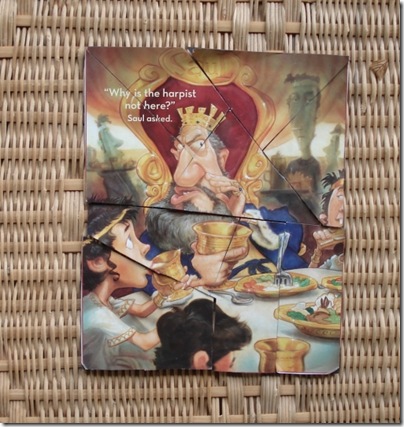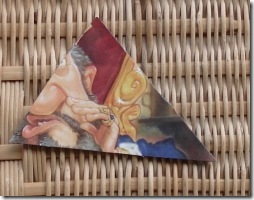Addendum:
Before leaving the question of "wash me whiter than snow" I would like to summarize my point. The Hebrew word
kabas, strictly speaking, means to "launder" clothes and make them white. When
kabas is translated as "wash" the reference to clothes is lost and the English translation now refers by default to the skin in the metaphor. It sounds as if the skin is being washed and made whiter than snow. However, the Hebrew does not say that.
To avoid mistranslating, alternate translations would be
"Launder me and make me whiter than snow."
"Wash me and make me purer than snow."
"Wash me and make me brighter than snow."
-----------------------------------
In Ps. 51:7
Purge me with hyssop, and I shall be clean;
wash me, and I shall be whiter than snow.
part of the imagery of washing is the simile “whiter than snow”
וּמִשֶּׁלֶג אַלְבִּין. This occurs in Is. 1:18 in a similar phrase “be as white as snow” JPS
כַּשֶּׁלֶג יַלְבִּינוּ. Snow is used a variety of ways, in association with leprosy, as an element in nature, and with reference to purity. It is also a mark of health in Lam. 4:7.
Her princes were purer than snow,
whiter than milk;
Snow is specifically described as “white.” For people who consider their skin to be white, this is unproblematic. However, this line “wash me and I shall be whiter than snow” may have some negative associations for people who describe their skin as black or in some other manner.
There are, however, different thoughts on the metaphorical meaning of black and white in diverse cultures. It would not necessarily be appropriate to suppose that using white in this simile is not the best choice in any particular culture but perhaps leave it open for discussion. Yet it is still possible to investigate the semantic field in search of alternative vocabulary to suggest as an option.
First, it does seem straightforward that “white” is the colour, rather than simply “cleanliness” or “brightness.” However, as discussed, the colour white does not always have a positive association: it is the distinctive colour of leprosy. Among those things which are white in colour, there is snow, wool, Is. 1:18, Dan. 7:9, Rev. 1:14; milk, teeth, Gen. 49:12; garments, Ecc. 9:8; hair, and horses, Zech. and the healthy skin of the princes in Lam. 4:7.
On the other hand, Mark 9:3 does give us reason to associate whiteness with brightness.
and his clothes became dazzling white, such as no one on earth could bleach them.
Colours also do not have any fixed metaphorical value, but gain value in context. In Is. 1:18 clean whiteness is contrasted with scarlet sins. In Lam 4:7-8 white skin is healthy and black skin is not. In Song of Solomon black skin is beautiful, and elsewhere in the Hebrew Bible white skin is a symptom of leprosy. Adam is red. Black, white and red are also the colours of horses.
It is quite possible then to communicate that the colour white is not invariably associated with a positive value, and black only rarely with a negative value. However, it is also fairly simple to find an acceptable alternative to “white” in this psalm.
In Lam. 4:7 the similes are “purer than snow, whiter than milk.”
זכך, “clean” or “pure” is also found in Job 9:30, 15:15, 25:5. HALOT has “be clear, bright” for
זכך. Considering the central role that this psalm plays in the liturgy it would be helpful to have a version without “white,” a version in which one could recite,
wash me and I shall be brighter than snow
This is, in fact, how the line is translated in the inclusive translation of Zimmerman, Harmon. 1993.*
Since “wash”
כּבס , “snow”
שׁלג and “bright,” or “pure”
זכך occur together in the associated passages in Lamentations and Job, this appears to be a suitable translation for this line. The related word
זכה also occurs in verse 4 and in Job 15:14, 25:4, Ps. 73:13, 119:9, Prov. 20:9, Is. 1:16 and Micah 6:11.
*Zimmerman, Joyce and Ann Kathleen Harmon Delphine Kolker, Pray Without Ceasing: Prayer for Morning and Evening. Liturgical Press. 1995
I apologize for the dry as bones style here. It is called "homework." I thought it might be of interest to a few.





